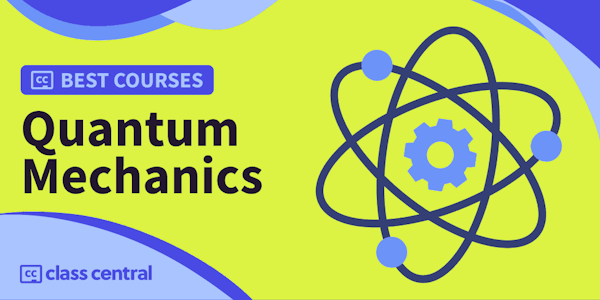Overview
This course can also be taken for academic credit as ECEA 5610, part of CU Boulder’s Master of Science in Electrical Engineering degree.
This course covers the fundamental concepts and topics of quantum mechanics which include basic concepts, 1D potential problems, time evolution of quantum states, and essential linear algebra. It provides undergraduate level foundational knowledge and build on them more advanced topics.
At the end of this course learners will be able to:
1. demonstrate full grasp of basic concepts in quantum mechanics including wave-particle duality, operators and wavefunctions, and evolution of quantum states,
2. achieve mastery of the mathematical apparatus needed for quantum mechanics and
3. attain foundational knowledge required to learn more advanced quantum mechanics and applications.
Syllabus
- Wave-particle Duality and Schrödinger Equation
- In this module we will introduce the course and the Quantum Mechanics for Engineers specialization. In addition, we will discuss wave-particle duality, time-independent Schrödinger equation. one-dimensional infinite potential well problem, properties of eigensolutions and Hilbert space.
- One-dimensional Potential Problems
- In this module, we will solve several one-dimensional potential problems. They include finite potential well, harmonic oscillator, potential step and potential barrier. We will discuss the physical meaning of the solutions and highlight any non-classical behaviors these problems exhibit.
- Operators and Measurements 1
- This module covers the theory of measurements in quantum mechanics. We start our discussion by introducing Stern-Gerlach experiment and the difficulty in interpreting the results classically. We then develop mathematical tools required to properly describe the results and then apply them to the interpretation of Stern-Gerlach experiments.
- Operators and Measurements 2
- In this module we expand upon the discussion from the previous module and introduces Hamiltonian, position and momentum operators and the uncertainty principle that governs the relationship between the operators. We also discuss the general principle of change of basis and the specific example of position and momentum representations.
- Time Evolution of Quantum States
- This module discusses how to describe the time-evolution of a quantum system. There are two equivalent methods, Schrödinger and Heisenberg pictures, where the time evolution can be obtained by the time-dependent Schrödinger equation and Heisenberg equation of motion, respectively. We will discuss the specific example of harmonic oscillator and finally introduce the particle current.
- Ensembles and Identical Particles
- This module discusses how to deal with ensembles. We will first discuss the difference between pure and mixed states and how to use the density matrix to describes them. We then discuss indistinguishable particles and exchange interaction, which eventually lead us to the thermal distribution functions.
Taught by
Wounjhang Park




